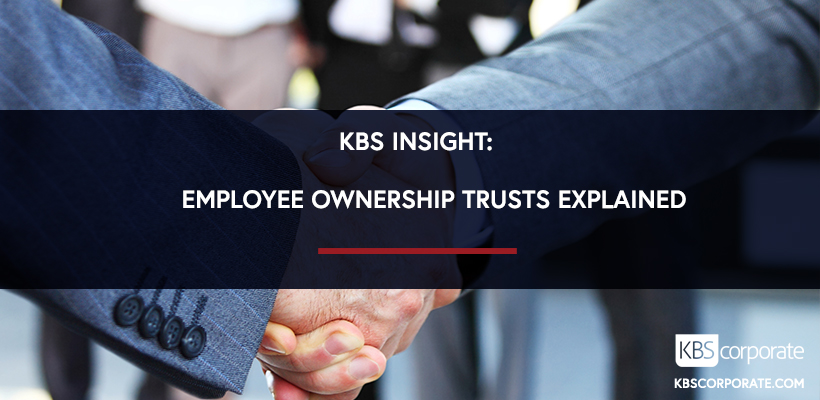EMPLOYEE OWNERSHIP TRUSTS EXPLAINED

What is an Employee Ownership Trust?
An Employee Ownership Trust is established on behalf of, and for the long-term benefit of, a company’s employees.
It means that if you sell your business to an EOT, the staff will be incentivised to contribute to the future success of the company – although it is important to distinguish that the employees will not become the owners. That will be the Trust, and the company will still be run by a board of directors.
Who Manages an Employee Ownership Trust?
For an EOT to work, the seller(s) must lose ultimate control of the business, which means the Trust must own 51% or more of the shareholding. The board of directors will make decisions in the best interests of the employees, with no requirement to involve the employees in their decision-making processes.
How Does an Employee Ownership Trust Work?
Employees will have a significant financial interest, as well as a voice, in the company and they will benefit from its future value. Therefore, they have greater motivation to ensure the ongoing success of the business, thereby increasing job satisfaction and productivity.
What is the Structure of Employee Ownership Trusts?
If you sell your business to an Employee Ownership Trust, you will have full control of the sale process and won’t be at the mercy of an external party with their own ideas about how they want the transaction to unfold. There will obviously still be some legal boxes to check, but much less takes place in the way of due diligence than with a trade deal. An EOT is a more collaborative than combative process.
How is an Employee Ownership Trust Funded?
As the employees do not buy shares or contribute funds into the Trust, you may be wondering where your sale proceeds would come from. Some of it may be from the company’s cash reserves, the remainder bridged by debt – which is either raised externally or in the form of loan notes paid out from the company’s future earnings, usually at a preferable interest rate.
What are the Conditions for an Employee Ownership Trust?
HMRC will expect the seller of the business not to control the board of directors or the EOT itself. The vendor(s) may have to identify suitable new board members and be confident in the ability of the remaining management team and their stewardship over the business to keep it running well and profitably, whilst servicing increased debt levels.
All employees must be able to benefit from the EOT, although new hires with less than 12 months’ service can be excluded. Certain persons must be excluded from benefitting from the trust, however. Specifically, those who own, or are entitled to acquire, at least 5% of the shares in the company. Close connections of those individuals must also be excluded, i.e. their children and spouse/civil partner.
Employee Ownership Trust Benefits
Employees do not require their own funding
The employees will not directly become shareholders themselves. Instead, the Trust becomes the shareholder. Thus, the staff do not take on any personal debt and it becomes a very low-risk venture for them.
There is no haggling over price
At KBS Corporate, when we preside over an EOT deal, our team will arrange an independent valuation and the price is then agreed between you and the trustees of the EOT. It is a fair market valuation and broadly equates to what a third party would be likely to pay. The pricing is set before the sale process begins, so you would not be committed to a transaction that ultimately culminates in delivering an unacceptable price.
Substantial tax benefits
Probably the best advantage of all…EOT sales are completely tax-free! As a seller, you could typically expect to pay up to 20% in Capital Gains Tax on the increase in capital value of your business. But the EOT must be executed with pinpoint accuracy to avoid being rejected by HMRC, which would mean full tax on the sale having to be paid, so having the right adviser alongside you is of paramount importance.
Employee Ownership Trust Disadvantages
The pros far outweigh the cons, but it should be borne in mind that the way an EOT is funded means there could be financial risks for the seller if the performance of the business suffers once the Trust has been put in place.
Summary
Employee Ownership Trusts have significant advantages but there are key financial and commercial considerations which need to be thoroughly weighed up before committing to a course of action. There are also detailed tax rules with which to comply to achieve a tax-free disposal to an EOT.
Tax and corporate finance advisers are a key part of the process in arriving at the right value, deal structure and funding for your company. Your advisers will then work alongside the legal team who will prepare the documents to implement your chosen structure.
We can assist in exploring your options to achieve a deal that meets the long-term aspirations for the business and helps to maximise value. If you are keen to protect your legacy and ensure the ongoing success of the business, an EOT offers a highly compelling option to allow just that, with the added benefit of generous tax incentives.